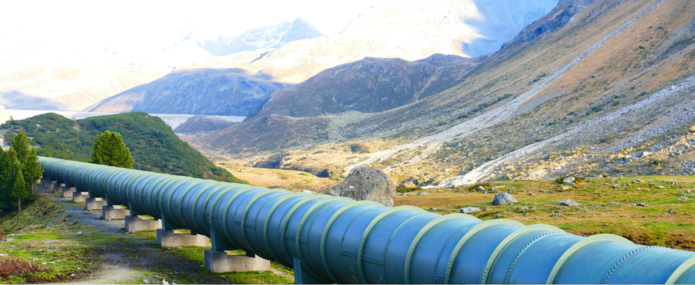The outbreak of war in Ukraine is a moment of truth for the security of the European Union. The vulnerabilities of its energy system, which is still too dependent on imported fossil fuels, particularly from Russia, are particularly obvious. In this context, the relevance and timeliness of its decarbonization agenda, whose guiding principle is a commitment to climate neutrality by 2050, are confirmed. For the EU, reducing fossil fuels means both doing its part to fight climate change and freeing itself from deleterious dependencies in times of crisis, both economically, with rising energy prices for European households and businesses, and ethically, when the energy bill contributes directly to financing the war.
In this context, the reaction of the European Union is to be welcomed, as it has quickly put the issue of an end to Russian fossil fuel imports at the top of the political agenda. In a Policy Brief published this week, IDDRI proposes a few principles to accelerate the end of natural gas imports from Russia to France and Europe. To achieve this, Member States should accelerate the implementation of their decarbonization policies, in particular energy demand reduction strategies. This means stepping up ambition in the area of buildings retrofitting, which can have an impact in the short term. In addition, there are measures whose effect is limited to the short term, such as voluntary or regulated rationing of energy consumption and diversification of supplies, provided that they do not lead to a lock-in of fossil energy consumption. Hydrogen, which has been at the heart of energy debates since 2020, is certainly an important solution for achieving climate neutrality, but it is not a decisive solution for getting out of fossil gas by 2030. Not only is the substitution of natural gas by hydrogen only relevant for a limited part of current uses (mainly in industry), but the available volumes of hydrogen, whether produced domestically or imported, will be relatively small by 2030.
In the current context, support for households and businesses in the face of rising energy prices will be crucial to mitigate the economic and social impacts of the war and to prepare for the continuation of transition policies on a solid political consensus. To do this, aid must be targeted at the most vulnerable actors, economically efficient by exposing certain actors-such as wealthy households or those with limited energy bills, or companies that can pass on the cost of energy to their customers-to the increase in energy costs, and reversible so as not to end up (by lowering taxes on fuel, for example) subsidizing fossil fuels in a sustainable manner. In a Study also published this week1 , IDDRI assesses the distributional impact on French and European households of two measures proposed in the Fit for 55 package on energy prices: the reform of the Energy Taxation Directive (ETD) and the creation of an emissions trading scheme for road transport and buildings (ETS-2). The results show that while the impact of these measures is real on household portfolios, the redistribution of revenues helps to mitigate this effect significantly. In addition, the impact remains heterogeneous according to criteria other than household income; in the case of France, rural households that consume more fossil fuels are more strongly affected, which argues for complementing these measures with targeted investment policies for modest and rural households. In the current context of high energy prices, it is also important to consider the timing of the major measures proposed in the Fit for 55 package, and more specifically the predictability of their impact on energy prices. It is thus essential to prepare for the post-crisis period, and to maintain the incentive to invest in the transition through the price signal when fossil fuel prices fall again, while ensuring appropriate distributional justice for households and businesses.
The debates on the adjustment of the EU's energy strategy to this new geopolitical situation have only just begun. IDDRI and all its partners will continue to contribute to this debate for the future of the European Union and the fight against climate change.
- 1This Study belongs to a project led by the Institute for European Environmental Policy (IEEP) and other partners in the Think Sustainable Europe (TSE) network: https://ieep.eu/publications/can-polluter-pays-policies-be-progressive




